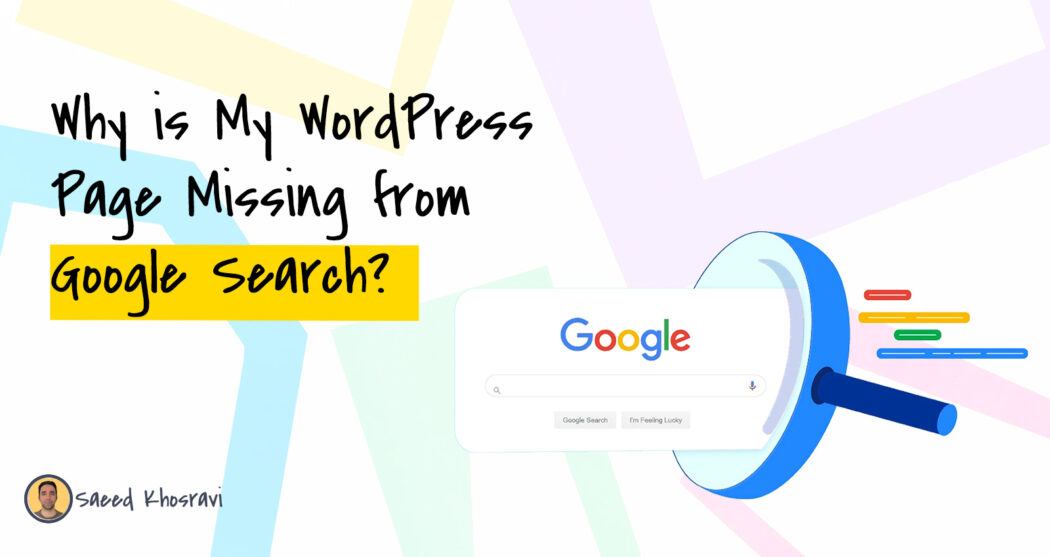If you’ve recently noticed that a page or post from your WordPress site isn’t appearing in Google Search results, you’re not alone. Many WordPress site owners face this issue at some point. Here’s how to troubleshoot and potentially resolve the problem.
Understanding Google’s Indexing Process
Let’s first start by understanding how Google’s indexing process works. Google uses bots to crawl and index web pages. After you publish or update a page on your WordPress site, Googlebot should crawl and index that page before it can show up on Google Search Result pages. There are two main factors that can delay indexing of a certain page on your WordPress site:
- Time Factor: After publishing or updating a post or page, Google might not immediately index it. It can take anywhere from a few days to a few weeks.
- Crawl Budget: Google allocates specific resources to crawl each site. If your site has numerous pages, not all might be crawled immediately.
Verifying Your Content’s Existence in Google’s Index
Before jumping to conclusions, ensure that your page or site is genuinely missing from Google’s index. Sometimes, your content might be ranking low or might not appear due to specific search parameters.
Now let’s see if the affected page or post from your WordPress site is really not in the Google index. You can try any of the following methods:
- Turn off Safe Search: This could be filtering Google search results, Google might have incorrectly associated your post or page with content that goes beyond its safe search results.
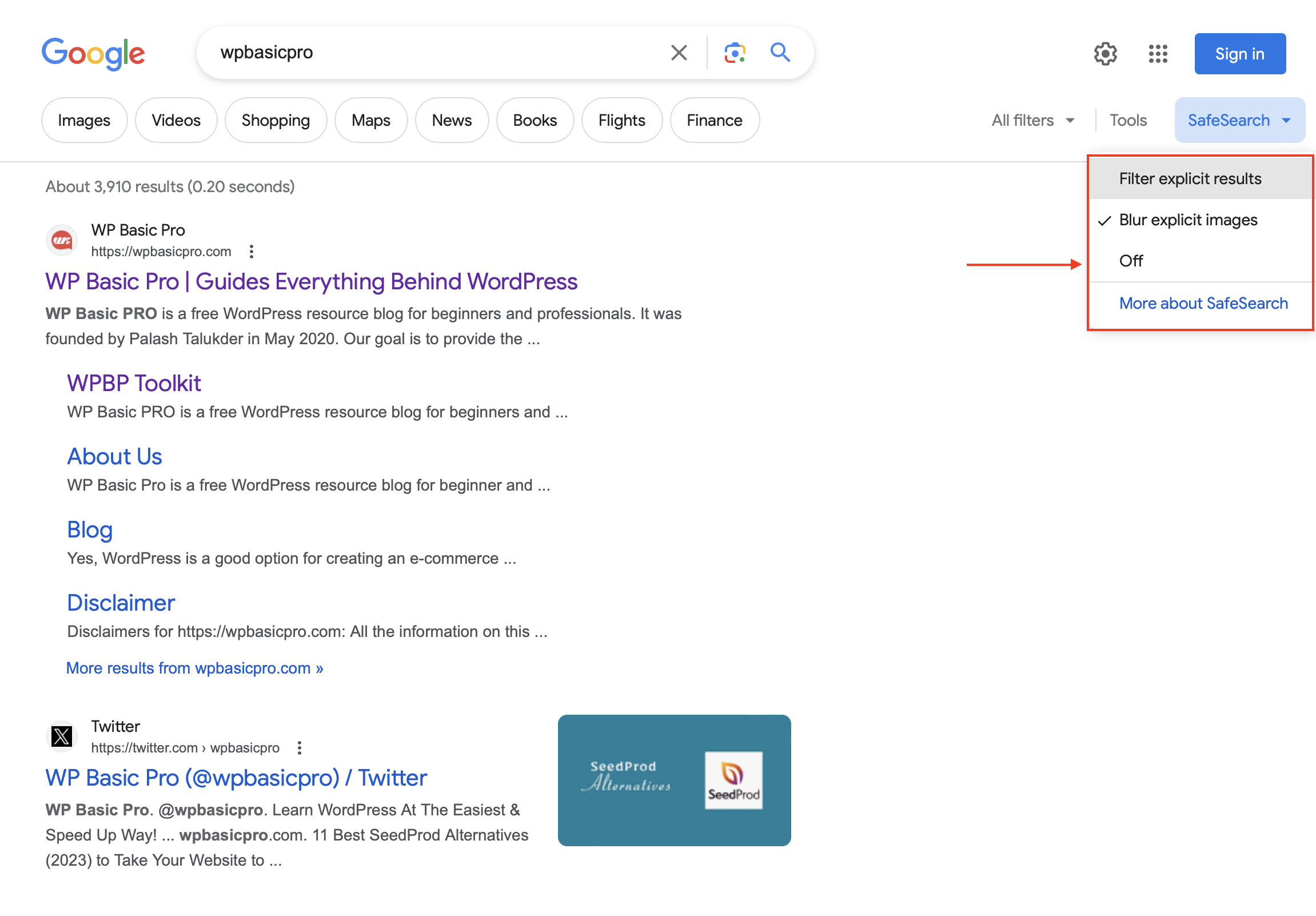
- Google Search Site Operator: Use the
site:wordpress_post_url syntax to check if your WordPress page or post is indexed or not.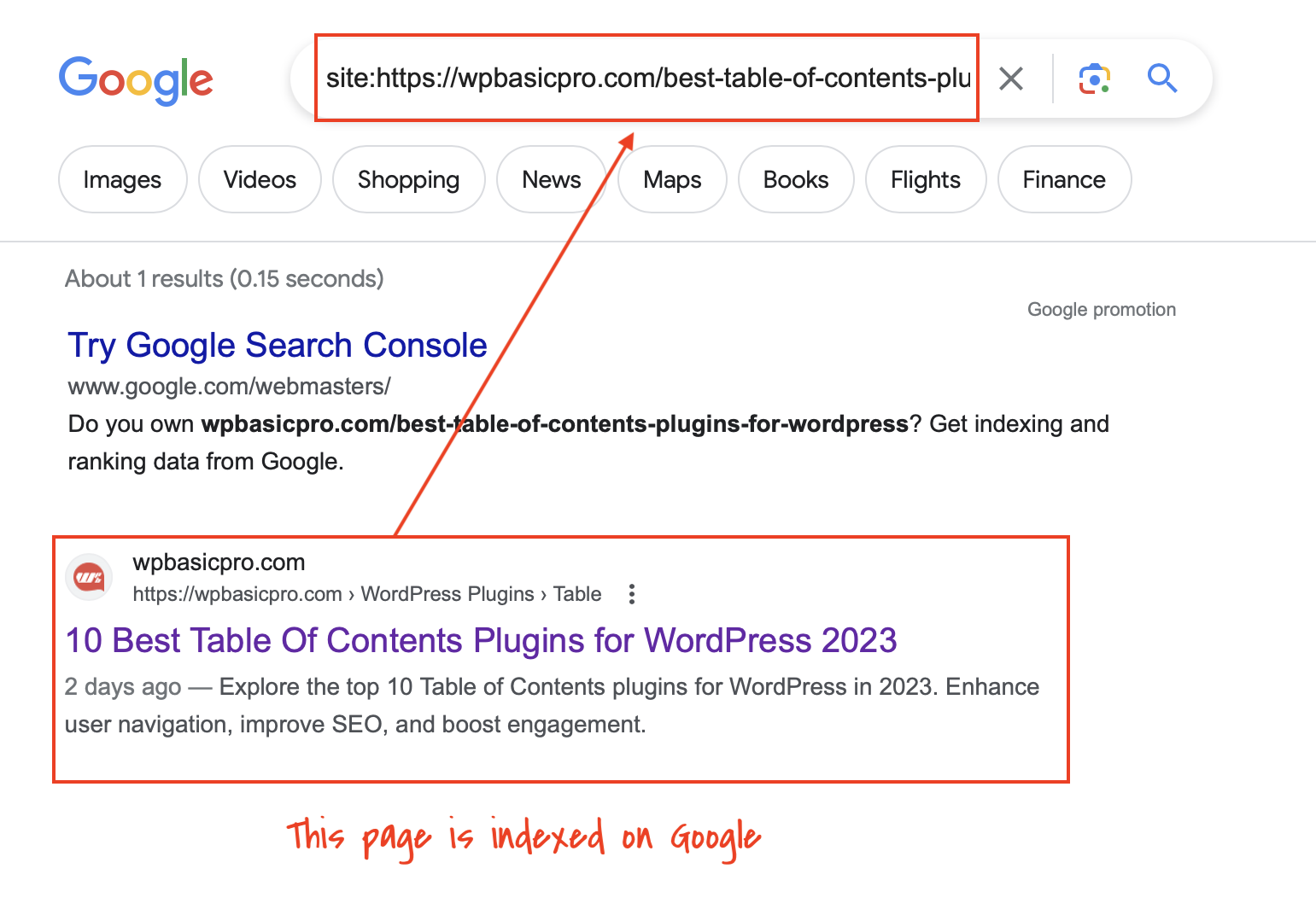
- Google Search Console: If your site is already set up with Google Search Console. You can use its URL inspection test tool to see if a page or post from your WordPress site is in the Google index or not. Also using its live mode you can see if Google can access your page or post and if not why.
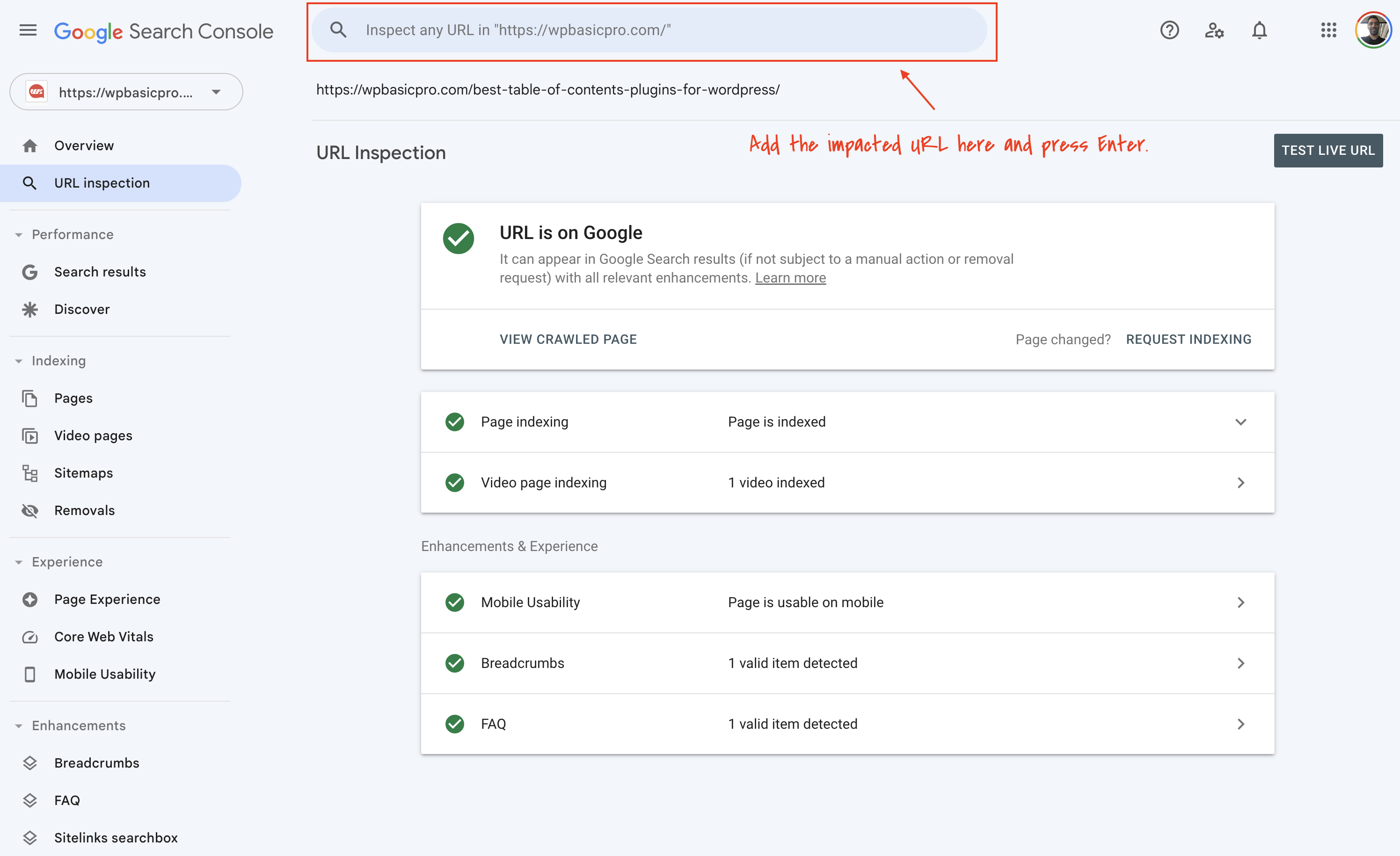
- Exact Match Search: Search part of the content of your page or post wrapped between a quotation mark. This way you instruct Google to find an exact match for the search phrase you provided it with. If no result is found, that means your page or post is not in the Google index.
If your site or specific page appears in the results using any of the above methods, it’s indexed. If not, you’ll now need to see why.
Using Google Search Console with WordPress. Google Search Console is a highly valuable tool for WordPress site owners. It provides insights into how Google views your site. If you haven’t already, ensure you’ve verified your WordPress site with Google Search Console. You can use Google’s WordPress Site Kit plugin for this.
Common Reasons for Missing Content in WordPress
Here are some of the most common WordPress-specific and general issues that might be leading to your page or post missing on Google:
- Robots.txt Restrictions: This file can instruct search engines not to crawl certain parts of your site. Ensure it’s correctly configured.
- Meta Noindex Tag: Some plugins or settings might unintentionally add a
noindextag to your content. - Canonical Issues: Ensure you’re not marking the wrong pages as canonical, leading to them being considered duplicates.
- URL Parameters: Complex URL parameters can confuse search engines. Use SEO-friendly permalink structures in WordPress.
- HTTP Headers: Ensure your server isn’t sending noindex headers. Tools like “HTTP Header Checker” can help.
- Redirection Issues: Ensure your pages aren’t being redirected multiple times, which can confuse search bots.
- Server Issues: If your server frequently goes down or is slow to respond, Google might reduce the frequency of crawls.
- Manual Action or Security issue: Your page or post might have been removed from Google’s index due to a penalty or security issue. To make sure if this is not the case, login to your Google Search Console account and navigate to the Manual action and security tab.
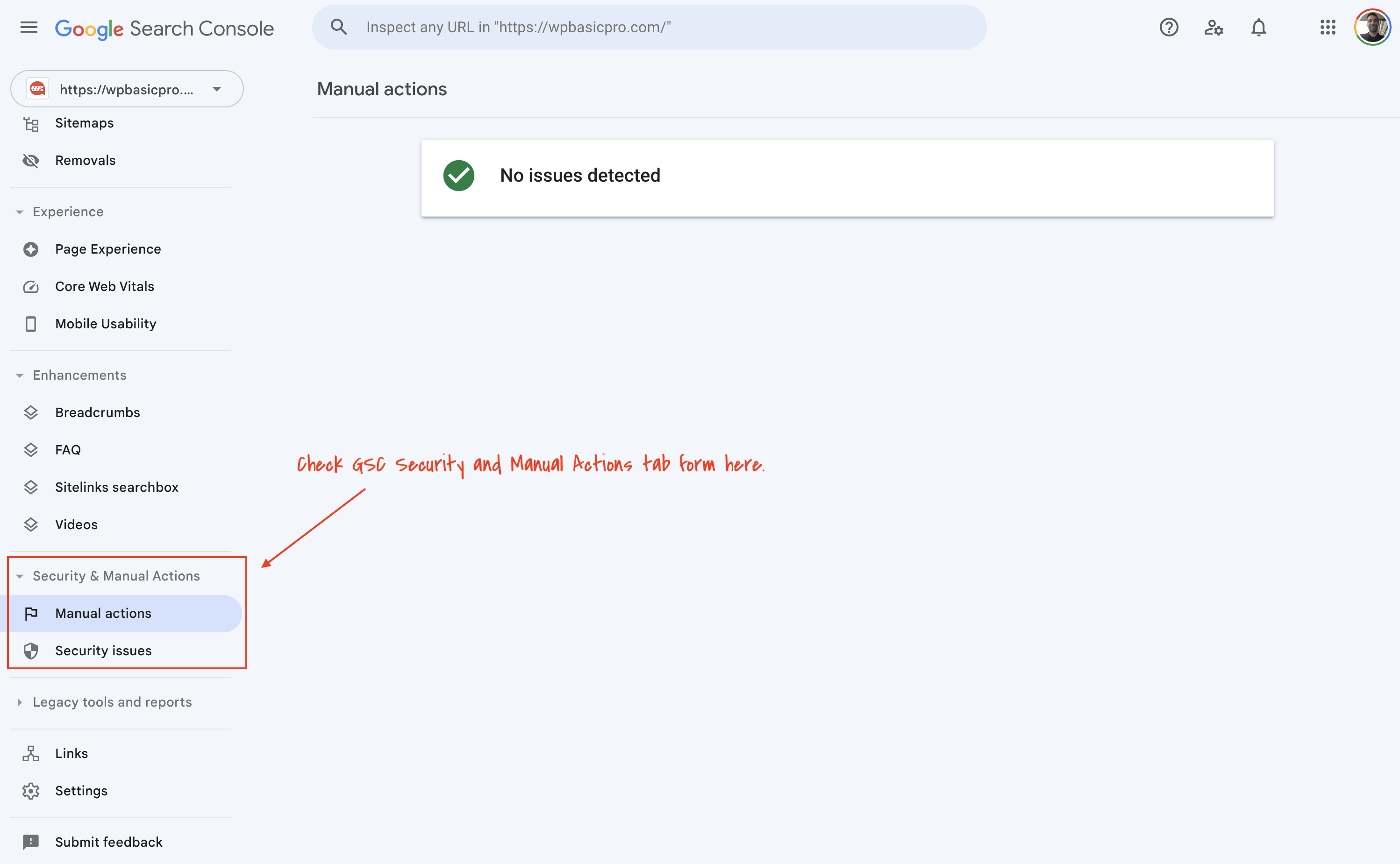
- Removal Request: You or another verified webmaster of your WordPress site might have removed the impacted URL via a removal request. To ensure that your page is not removed from Google index due to this reason, login to your Google Search Console and head over to the Removal Request section.
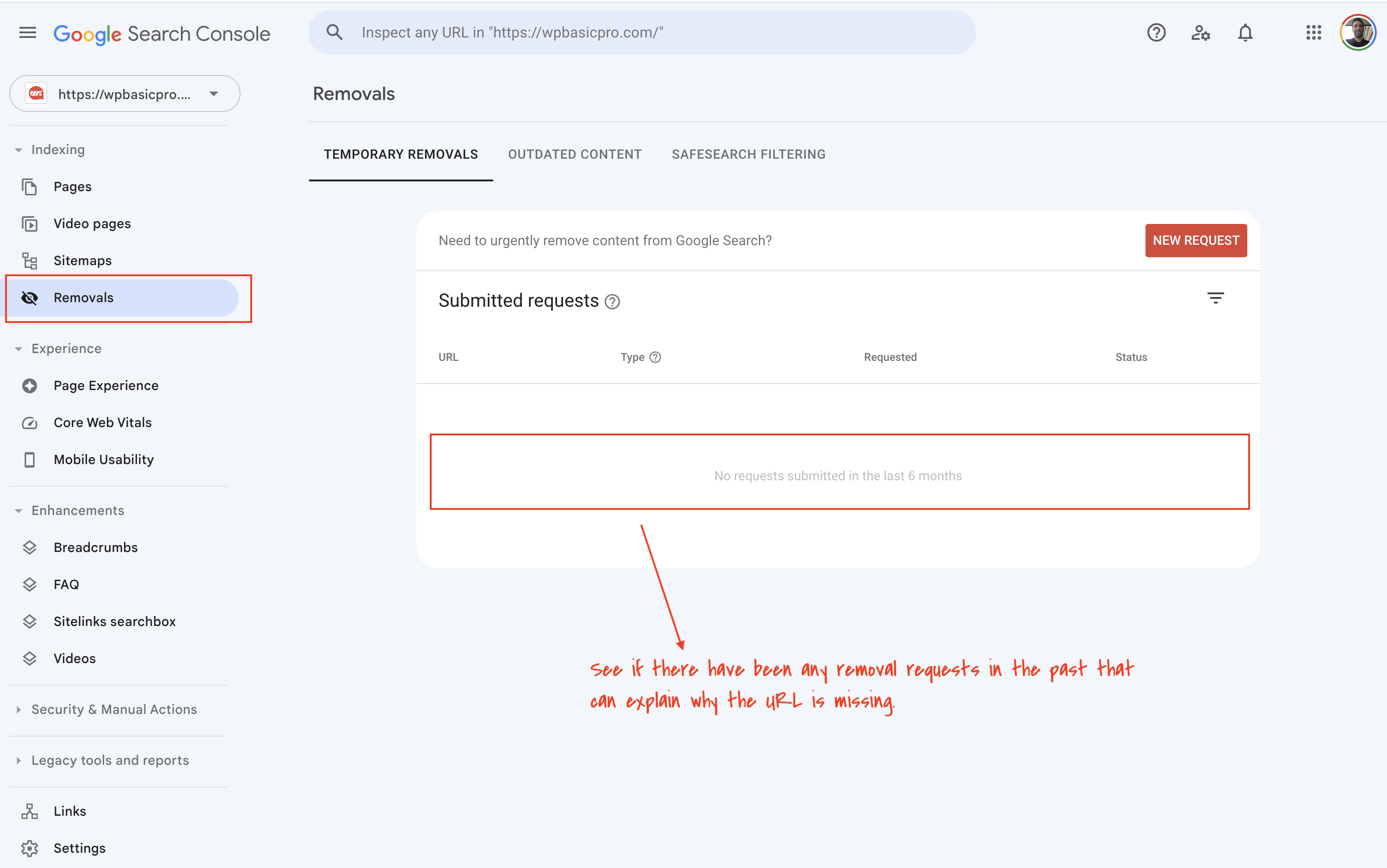
Optimizing Your WordPress Site for Better Indexing
Improve Google’s ability to find, crawl and index your WordPress site using the following methods:
- Quality Content: Ensure your content is original, valuable, and not duplicated across multiple pages. Avoid creating thin pages with little content or pages that can solely fall under the content farms and Made for Ads (MFA) type of websites.
- Mobile Optimization: Google follows a mobile-first indexing approach. Use responsive themes and test your site’s mobile usability. If your site is set with Google Search Console, it will notify you when try issues related to your site’s mobile display.
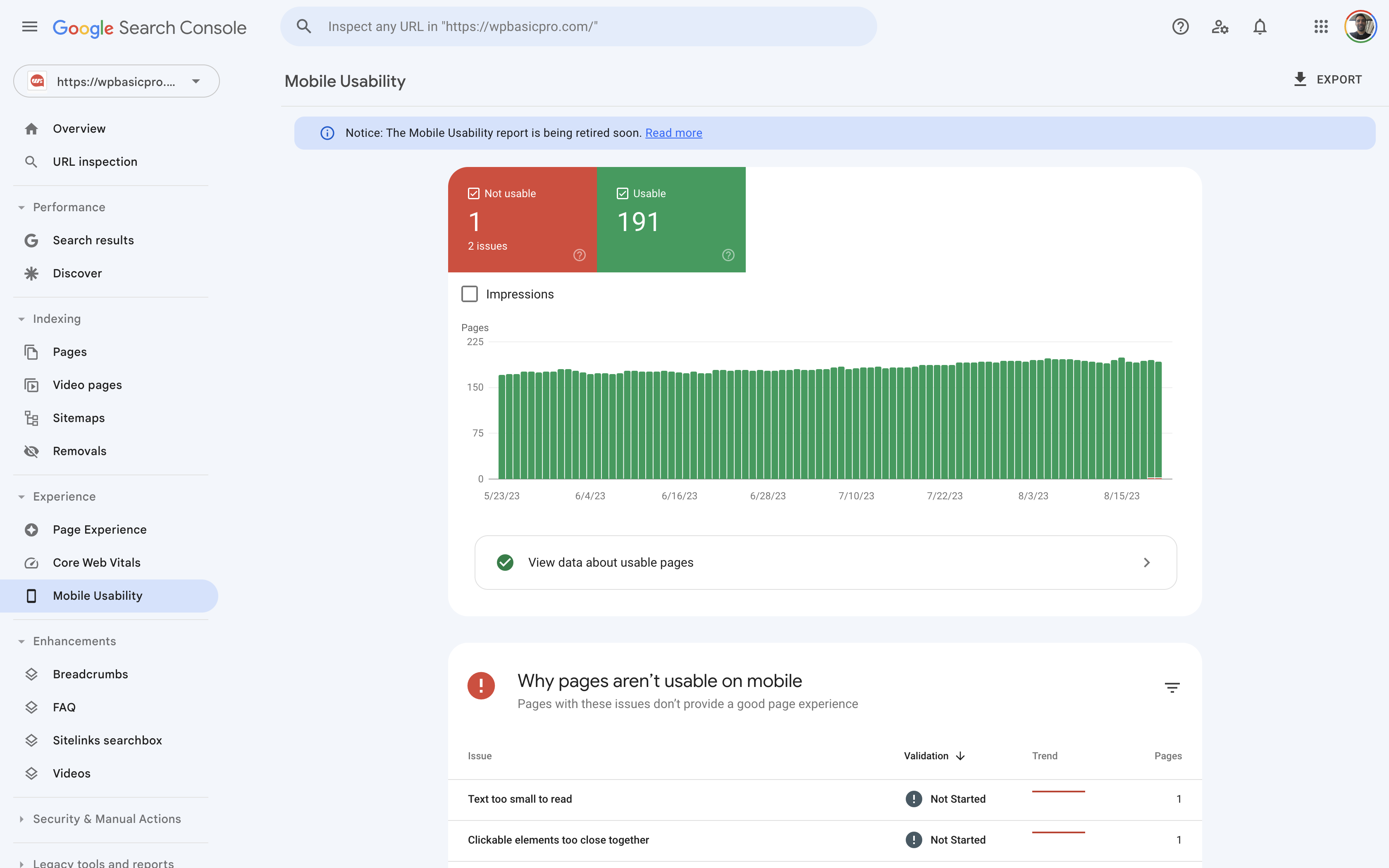
Alternatively you can use the Google mobile-friendly test tool to see if the missing page is mobile friendly or not. - Sitemap Submission: Use plugins like Yoast SEO or All in One SEO to generate an XML sitemap that automatically gets updated whenever you add a new post or page. You can submit your sitemap URL in your Google Search Console account, guiding Google on which pages to crawl.
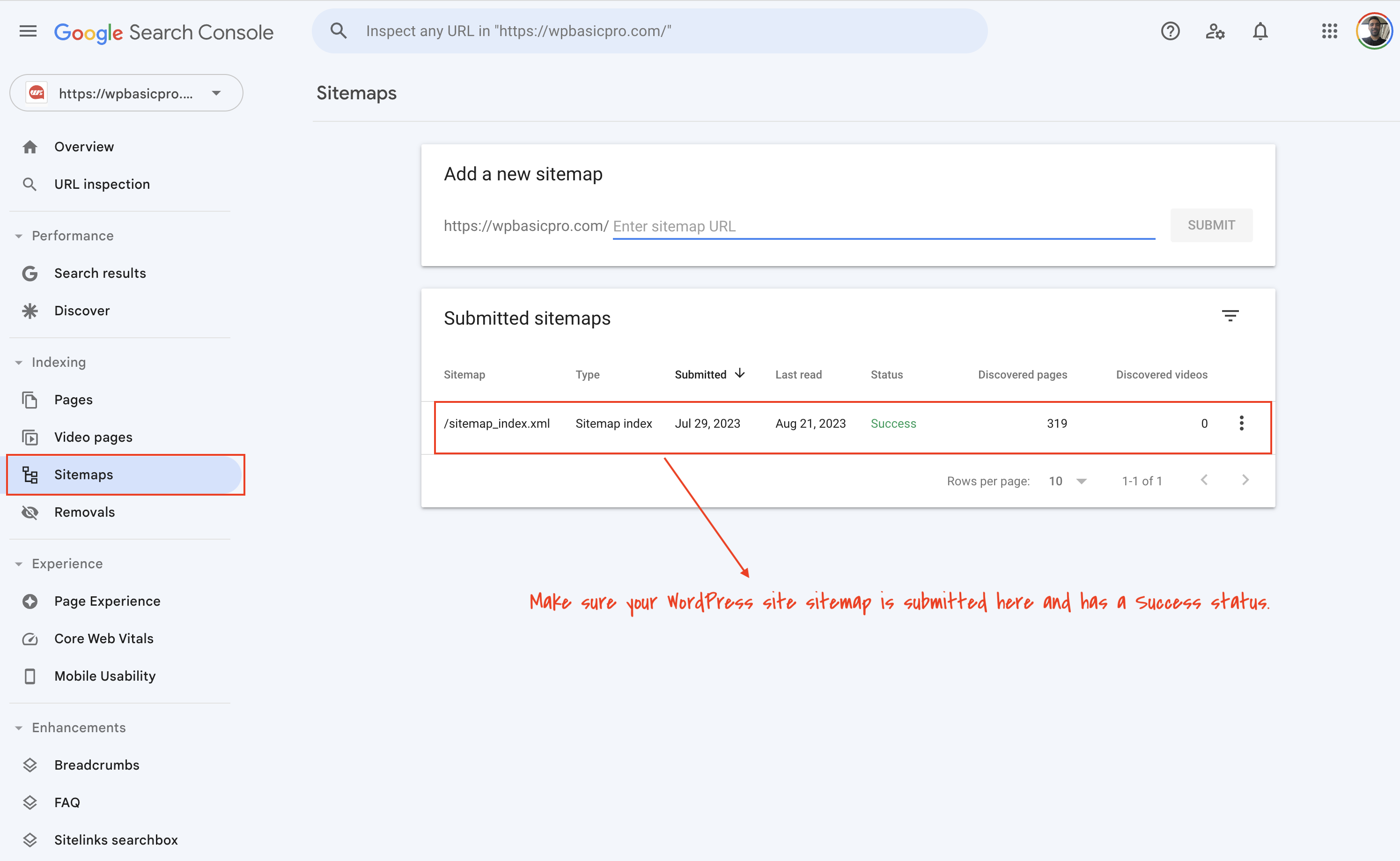
- Site Speed: Google considers site speed in its ranking. Optimize images, use caching plugins, and consider a Content Delivery Network (CDN) to improve speed. You can test your website’s speed using Google’s PageSpeed Insights Tool.
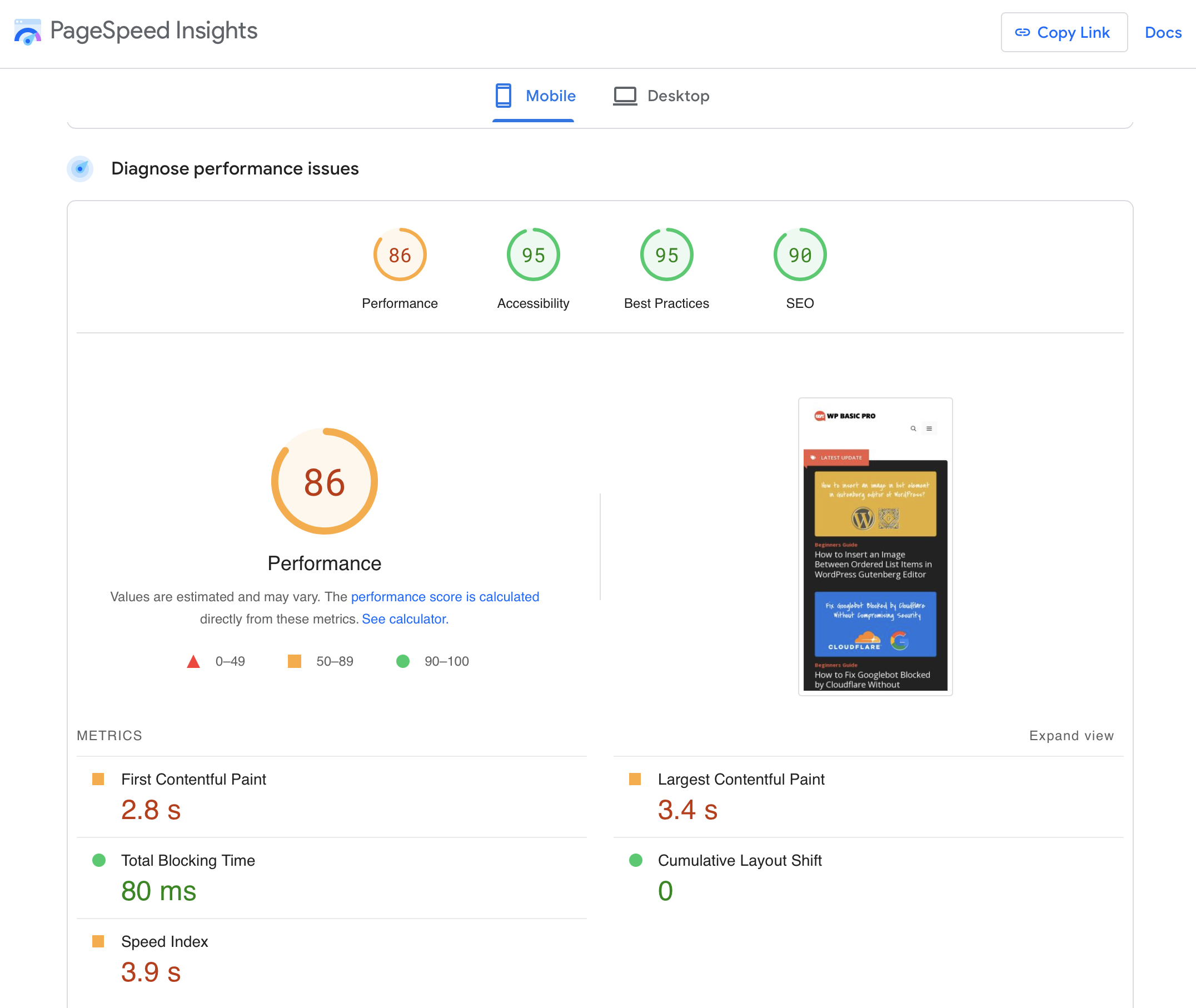
- Internal Linking: A well-structured internal linking strategy helps Google understand the importance and relationship of your pages.
- Avoid Complex Linking: Ensure your WordPress site doesn’t rely heavily on links that require user interaction to appear or non-standard linking technologies.
Conclusion
While it’s concerning to find your WordPress post or page missing from Google Search, understanding the intricacies of indexing can help you diagnose and solve the problem. Sometimes it is just the time factor, if the page or post is new, it might take a few days to appear on Google search result even after being indexed. If it’s been a few days and the page is not yet indexed, you can manually request indexing using Google Search Console.
If you’ve tried everything and still face issues, the community can be a goldmine of information. You can seek help using any of the following two forums:
- WordPress Support Forums: Describe your issue, and fellow WordPress users might offer solutions.
- Google’s Webmaster Forum: Engage with experts who might provide insights specific to Google’s indexing.
Regular monitoring, optimization, and community engagement are key to ensuring your WordPress content’s visibility in search results.
